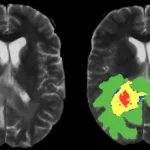Let’s get real for a second. You wake up in the morning, groggy, hoping today’s different. But then—bam!—that sciatic pain snakes down your hip and into your leg. It’s that familiar, “oh no, not again” feeling. Maybe you roll your eyes. Maybe you curse under your breath. But you get up anyway, limping through those first steps, sort of hoping it’ll vanish on its own.
But it doesn’t. And you’re left wondering: Who is the right sciatic nerve pain doctor for me? Does a neurologist treat sciatica, or is this an orthopedic doctor’s thing? Hey, you might even have googled, “sciatica orthopedic or neurologist”—and it probably only made things fuzzier. Let’s untangle the mess together, piece by piece, and actually figure out who’s got your back (and your leg).
What Is Sciatica, Really? (The Unfiltered Lowdown)
Let’s not sugarcoat it. Sciatica is wild. It’s a pain situation caused by pressure on your sciatic nerve—the biggest, thickest nerve in your body. This pesky nerve runs from your lower back, through your butt, and all the way down each leg (impressive, right?). When it’s irritated, it can send pain, tingling, numbness, or weakness shooting down your leg like a bolt of lightning. Sometimes it comes in waves, sometimes it just sticks around like an unwelcome guest at a party.
And when we talk about sciatic nerve pain at night, oof. That’s when it gets evil—lying in bed, trying to find a position that doesn’t shoot pain through your body. Tossing, turning, cursing your mattress. If that sounds familiar, you’re not the only one.
But what’s actually going on in there? The sciatic nerve usually gets pinched or squished by a herniated disc, bone spur, or sometimes even just inflammation. Maybe you bent over to tie your shoes, or you sat for too long—yeah, sciatica doesn’t care about your plans. It just shows up.
Who Can Help with Sciatica? (And Why It’s So Confusing)
Now for the million-dollar question: Does a neurologist treat sciatica? Or is this the job of an orthopedic doctor? Maybe both?! Let’s break it down in a way that makes sense—no textbooks, just real talk.
There are a few main “players” in the sciatica game:
| Doctor Type | What They Do | When You Might See Them |
|---|---|---|
| Neurologist | Specializes in nerves, spinal cord, and brain. Diagnoses/treats nerve issues. | Your pain, numbness, or weakness feels “weird,” severe, or isn’t improving. |
| Orthopedic Doctor | Fixes bones, joints, muscles, and spine structures. | You’ve got back pain, injury, or spine problems causing the nerve pinch. |
| Pain Specialist | Manages chronic pain of all kinds—not just nerve pain. | Your pain just won’t quit, and you need help with relief while you work on fixing the main issue. |
So, sciatica orthopedic or neurologist—who’s right for you? Well, sometimes you need both. Sometimes, your journey begins with whoever you can see first (that’s the honest truth!). But let’s zoom in a little more.
Does a Neurologist Treat Sciatica? Let’s Get Specific
Short answer: Yes, a neurologist can and does treat sciatica. And here’s why that matters—they live and breathe nerves. If you feel tingling, numbness that just doesn’t quit, or weakness that makes you trip sometimes, a neurologist is your go-to pro. They’re all about finding out if your nerve is actually being damaged, or if there’s a deeper neurological issue that needs attention.
Take it from me—okay, technically, I’m just a friendly AI and not a human with legs, but I’ve read thousands of stories from real people. Folks who saw a neurologist when their regular treatments didn’t work, or when their doc suspected “something more” going on. Neurologists use fancy, super-cool tools like EMG (tests your nerves directly) and MRI (checks for disc problems) to nail down the cause, which can really make all the difference.
But let’s not forget about the orthopedics: can an orthopedic doctor treat sciatica? Yup! If your sciatica is from a herniated disc, spinal arthritis, or a super-annoying bone spur, then this is their home turf. The best care, honestly, is often a team effort—neurologist for nerve deep-dives, orthopedic for fixing what’s causing the squeeze.
What Does a Neurologist Actually Do for Sciatica?
So you’re thinking about picking up the phone. What happens at your appointment? First, your neurologist will do some hands-on testing: they’ll check your reflexes, ask about every twinge and tingling, maybe even poke you with a pointy thing to see what you can (and can’t) feel.
Then, depending on your symptoms and what’s going on, they might send you for tests. An MRI can show nerve pinching or damage. An EMG (that’s “electromyography,” try saying it five times fast) measures how well your nerves and muscles are actually working together.
Here’s where experience gets real: sometimes, the right diagnosis comes from a good story, not just fancy imaging. So when you’re in that appointment, don’t hold back—tell them the whole saga, the weird patterns, when it’s worst (like those 2 am wake-ups), what makes it better or worse. The more details, the closer they get to the truth.
What Treatments Do Neurologists and Orthopedic Doctors Offer?
This is where things get interesting. Neurologists and orthopedic doctors both aim to relieve your suffering, but they’ve got different tools on their belts.
Neurologists mostly handle the diagnosis, guiding medications for nerve pain (like gabapentin or pregabalin), and sometimes recommending nerve block injections. They’ll definitely help you understand when it’s okay to keep stretching and moving at home, and when it’s time to take a break.
Orthopedic doctors are fixers—they’ll jump in if you need surgery, or if physical therapy and meds aren’t enough. They’ve seen every kind of “disc gone wrong,” and if something is out of whack in your back’s structure, these are the people who’ll set it straight (sometimes literally).
But there’s also physical therapists, pain doctors, and even spine surgeons. Sometimes, you’ll find yourself collecting a whole team of caring, smart people who make sure no stone is left unturned.
According to the other guide of HealthEH, sometimes “pressure on the sciatic nerve can cause pain and often numbness down a leg. Self-care measures might help,” but if not, it’s time to get serious help (sciatic nerve pain doctor).
But What About Self-Care and When to See a Specialist?
Look, some sciatica gets better on its own. Heat, ice, stretches, weird yoga poses you found on YouTube—yeah, they can help…sometimes. But certain red flags mean you should see a doctor yesterday:
- Pain isn’t getting better after a couple weeks
- Your leg feels numb or suddenly goes weak
- You’ve lost control of your bladder or bowels (go to the ER for this, seriously!)
- The pain keeps you up all night, every night
At that point, don’t be shy—reach out for help. The right answer might be a neurologist, an orthopedic doctor, or even both. There’s no “wrong” choice; it’s about finding the person who listens and takes your pain seriously. If you’re feeling stuck or unheard, it’s 100% okay to ask for a second opinion. In fact, it’s smart.
Balancing the Benefits and Risks of Different Doctors
Let’s be honest: the healthcare world can be like picking your way through a minefield—one wrong step and you’re lost in the “referral maze.” Here’s what’s worked for real people:
Some folks start with their family doctor, who then recommends a specialist based on what sounds like the root cause. Others who have serious leg weakness, or pain that’s spreading and won’t ease up, often end up with a neurologist first for their expertise. People whose pain seems “mechanical”—as in, it started right after a weird bend or lift—tend to go to an orthopedic doc first.
The truth? Both neurologists and orthopedic doctors have unique skills for treating sciatica. If you ever feel like you’ve hit a wall, switching lanes does not mean you’ve failed. Sometimes it’s the only way forward.
And remember: don’t let anyone rush you into surgery unless you’ve tried conservative options and understand all the risks and benefits. There’s always time for thorough questions. Always.
How to Get Ready for Your Sciatica Appointment (Minor League to Major League!)
First, pat yourself on the back—you’re already taking action. It’s smart to show up with a little “plan.” Write down your symptoms (especially the weird, stubborn, or new ones). Have you noticed sciatic nerve pain at night? Is it hard to get out of bed, or does sneezing send you through the roof?
Bring a list of all your medications (even vitamins—seriously, everything). Think about any injuries, even old ones. It all matters.
Questions to ask your doctor might include:
- Do you think my sciatica is from a nerve, a bone problem, or both?
- What are my treatment options, and what are the risks and the “win rates” for each?
- What should I do at home to get better faster?
- Is it okay to keep exercising—or should I rest more?
- When should I panic and call for help (like, actually bad signs)?
Don’t be afraid to ask them to repeat stuff in plainer English if you’re lost. You’d be surprised how often doctors are happy to break it down, as long as you speak up.
Let’s Wrap This Up—The Real-World, No-Fluff Summary
Sciatica is a beast, but you’re not stuck fighting it alone. Does a neurologist treat sciatica? Absolutely. Do you sometimes need an orthopedic doc? Yes, yes, and yes. Your pain is real, your frustration is real, and you deserve care that’s actually tailored to the wild ride your body’s taking you on.
So, next step—don’t be shy. Make that appointment. Go in with your questions (even the ones that sound silly in your head—those matter the most). Trust your gut. If you ever feel like you’re not being heard, try someone new. Relief is possible, and you’re 100% worth it.
Take a deep breath. You’ve got this. And if you want to share your own story, ask questions, or just commiserate about “that one night when my leg wouldn’t let me sleep”—I’m here to listen. Seriously.





















Leave a Reply
You must be logged in to post a comment.